Uses
This medication is used to treat muscle spasms caused by certain conditions (such as multiple sclerosis, spinal cord injury). It works by helping to relax the muscles.
How to use Tizanidine HCL
Take this medication by mouth as directed by your doctor, usually every 6 to 8 hours.
The dosage is based on your medical condition, response to treatment, and other medications you may be taking. Be sure to tell your doctor and pharmacist about all the products you use (including prescription drugs, nonprescription drugs, and herbal products). To reduce your risk of side effects, your doctor may direct you to start this medication at a low dose and gradually increase your dose. Follow your doctor's instructions carefully. Do not take more than 36 milligrams a day or more than 3 doses in a 24-hour period.
Your body will absorb this medication differently depending on whether you take it as a tablet or capsule, whether you take it with food or on an empty stomach, or if you sprinkle the contents of the capsule on food. Be sure to discuss with your doctor how to take this medication to determine the best way to take your dose, especially when changes to your dose are being considered or if your doctor prescribes a different form of tizanidine (such as tablet or capsule).
If you suddenly stop using this medication, you may have withdrawal symptoms (such as anxiety, tremor, increased blood pressure/heart rate/muscle tenseness). To help prevent withdrawal, your doctor may lower your dose slowly. Withdrawal is more likely if you have used tizanidine for a long time or in high doses. Tell your doctor or pharmacist right away if you have withdrawal.
Tell your doctor if your condition does not improve or if it worsens.
Side Effects
Dry mouth, drowsiness, dizziness, lightheadedness, constipation, weakness, and tiredness may occur. If any of these effects last or get worse, tell your doctor or pharmacist promptly.
To relieve dry mouth, suck (sugarless) hard candy or ice chips, chew (sugarless) gum, drink water, or use a saliva substitute.
To reduce the risk of dizziness and lightheadedness, get up slowly when rising from a sitting or lying position.
Remember that this medication has been prescribed because your doctor has judged that the benefit to you is greater than the risk of side effects. Many people using this medication do not have serious side effects.
Tell your doctor right away if you have any serious side effects, including: fainting, mental/mood changes (such as hallucinations), slow/irregular heartbeat, vision changes (such as blurred vision).
Tizanidine has rarely caused very serious (rarely fatal) liver disease. Tell your doctor right away if you develop symptoms of liver disease, including: nausea/vomiting that doesn't stop, severe stomach/abdominal pain, dark urine, yellowing eyes/skin.
A very serious allergic reaction to this drug is rare. However, get medical help right away if you notice any symptoms of a serious allergic reaction, including: rash, itching/swelling (especially of the face/tongue/throat), severe dizziness, trouble breathing.
This is not a complete list of possible side effects. If you notice other effects not listed above, contact your doctor or pharmacist.
In the US -
Call your doctor for medical advice about side effects. You may report side effects to FDA at 1-800-FDA-1088 or at www.fda.gov/medwatch.
In Canada - Call your doctor for medical advice about side effects. You may report side effects to Health Canada at 1-866-234-2345.
Precautions
Before taking tizanidine, tell your doctor or pharmacist if you are allergic to it; or if you have any other allergies. This product may contain inactive ingredients, which can cause allergic reactions or other problems. Talk to your pharmacist for more details.
Before using this medication, tell your doctor or pharmacist your medical history, especially of: low blood pressure, kidney disease, liver disease.
This drug may make you dizzy or drowsy. Alcohol or marijuana (cannabis) can make you more dizzy or drowsy. Do not drive, use machinery, or do anything that needs alertness until you can do it safely. Avoid alcoholic beverages. Talk to your doctor if you are using marijuana (cannabis).
Before having surgery, tell your doctor or dentist about all the products you use (including prescription drugs, nonprescription drugs, and herbal products).
Older adults may be more sensitive to the side effects of this drug, especially dizziness and drowsiness. These effects can increase the risk of falling.
During pregnancy, this medication should be used only when clearly needed. Discuss the risks and benefits with your doctor.
It is unknown if this drug passes into breast milk. Consult your doctor before breastfeeding.
Interactions
Drug interactions may change how your medications work or increase your risk for serious side effects. This document does not contain all possible drug interactions. Keep a list of all the products you use (including prescription/nonprescription drugs and herbal products) and share it with your doctor and pharmacist. Do not start, stop, or change the dosage of any medicines without your doctor's approval.
Some products that may interact with this drug include: certain drugs to treat high blood pressure (alpha agonists such as clonidine, methyldopa).
Other medications can affect the removal of tizanidine from your body, which may affect how tizanidine works. Examples include birth control pills, ciprofloxacin, enasidenib, fluvoxamine, viloxazine, among others.
Tell your doctor or pharmacist if you are taking other products that cause drowsiness including alcohol, marijuana (cannabis), antihistamines (such as cetirizine, diphenhydramine), drugs for sleep or anxiety (such as alprazolam, diazepam, zolpidem), other muscle relaxants, and opioid pain relievers (such as codeine).
Check the labels on all your medicines (such as allergy or cough-and-cold products) because they may contain ingredients that cause drowsiness. Ask your pharmacist about using those products safely.
Overdose
If someone has overdosed and has serious symptoms such as passing out or trouble breathing, call 911. Otherwise, call a poison control center right away. US residents can call 1-800-222-1222. Canada residents can call 1-844-764-7669. Symptoms of overdose may include: severe dizziness/drowsiness, confusion, slow/shallow breathing, fainting.
Do not share this medication with others.
Lab and/or medical tests (such as blood pressure, liver function) should be done while you are taking this medication. Keep all medical and lab appointments. Consult your doctor for more details.
If you miss a dose, take it as soon as you remember. If it is near the time of the next dose, skip the missed dose. Take your next dose at the regular time. Do not double the dose to catch up.
Store at room temperature away from light and moisture. Do not store in the bathroom. Keep all medications away from children and pets.
Do not flush medications down the toilet or pour them into a drain unless instructed to do so. Properly discard this product when it is expired or no longer needed. Consult your pharmacist or local waste disposal company.
Images
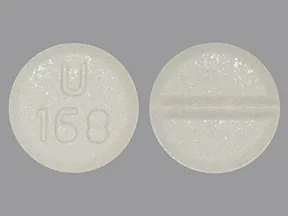
tizanidine 2 mg tablet
Color: whiteShape: roundImprint: U 168This medicine is a white, round, scored, tablet imprinted with "U 168".
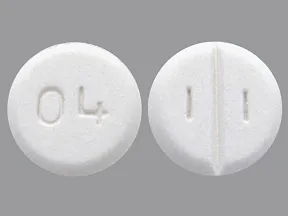
tizanidine 2 mg tablet
Color: whiteShape: roundImprint: 1 1 04This medicine is a white, round, scored, tablet imprinted with "U 168".
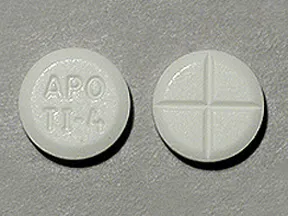
tizanidine 4 mg tablet
Color: whiteShape: roundImprint: APO TI-4This medicine is a white, round, scored, tablet imprinted with "U 168".

tizanidine 4 mg tablet
Color: whiteShape: ovalImprint: R180This medicine is a white, round, scored, tablet imprinted with "U 168".
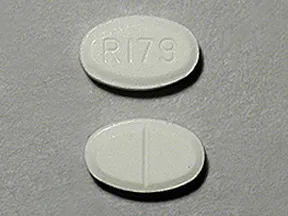
tizanidine 2 mg tablet
Color: whiteShape: ovalImprint: R179This medicine is a white, round, scored, tablet imprinted with "U 168".

tizanidine 4 mg tablet
Color: whiteShape: roundImprint: U 169This medicine is a white, round, scored, tablet imprinted with "U 168".

tizanidine 2 mg tablet
Color: whiteShape: roundImprint: APO TI-2This medicine is a white, round, scored, tablet imprinted with "U 168".

tizanidine 4 mg tablet
Color: whiteShape: roundImprint: 503This medicine is a white, round, scored, tablet imprinted with "U 168".

tizanidine 2 mg tablet
Color: whiteShape: roundImprint: 502This medicine is a white, round, scored, tablet imprinted with "U 168".

tizanidine 4 mg capsule
Color: white,blueShape: oblongImprint: 4 MGThis medicine is a white, round, scored, tablet imprinted with "U 168".

tizanidine 2 mg capsule
Color: light blueShape: oblongImprint: 2 MGThis medicine is a white, round, scored, tablet imprinted with "U 168".
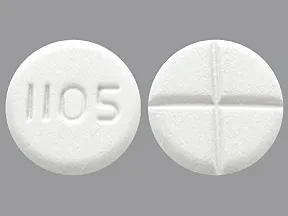
tizanidine 4 mg tablet
Color: whiteShape: roundImprint: 1105This medicine is a white, round, scored, tablet imprinted with "U 168".

tizanidine 6 mg capsule
Color: blueShape: oblongImprint: 6 MGThis medicine is a white, round, scored, tablet imprinted with "U 168".
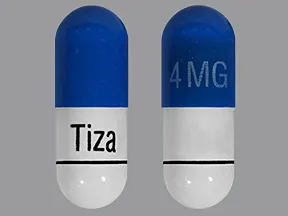
tizanidine 4 mg capsule
Color: white,blueShape: oblongImprint: 4MG TizaThis medicine is a white, round, scored, tablet imprinted with "U 168".
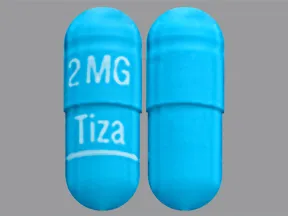
tizanidine 2 mg capsule
Color: light blueShape: oblongImprint: 2MG TizaThis medicine is a white, round, scored, tablet imprinted with "U 168".
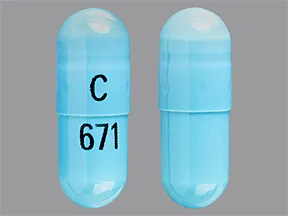
tizanidine 4 mg capsule
Color: light blueShape: oblongImprint: C 671This medicine is a white, round, scored, tablet imprinted with "U 168".
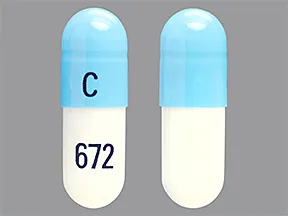
tizanidine 6 mg capsule
Color: light blue,whiteShape: oblongImprint: C 672This medicine is a white, round, scored, tablet imprinted with "U 168".
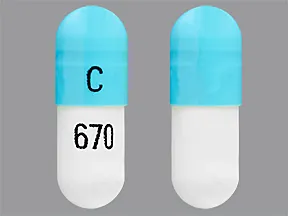
tizanidine 2 mg capsule
Color: white,blueShape: oblongImprint: C 670This medicine is a white, round, scored, tablet imprinted with "U 168".

tizanidine 2 mg capsule
Color: blueShape: oblongImprint: APO T2This medicine is a white, round, scored, tablet imprinted with "U 168".

tizanidine 2 mg capsule
Color: light blueShape: oblongImprint: A 202This medicine is a white, round, scored, tablet imprinted with "U 168".

tizanidine 6 mg capsule
Color: blueShape: oblongImprint: APO T6This medicine is a white, round, scored, tablet imprinted with "U 168".
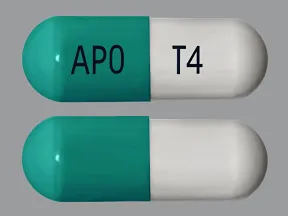
tizanidine 4 mg capsule
Color: white,blue-greenShape: oblongImprint: APO T4This medicine is a white, round, scored, tablet imprinted with "U 168".

tizanidine 2 mg capsule
Color: light blueShape: oblongImprint: 1111This medicine is a white, round, scored, tablet imprinted with "U 168".

tizanidine 6 mg capsule
Color: blueShape: oblongImprint: ING 226 ING 226This medicine is a white, round, scored, tablet imprinted with "U 168".
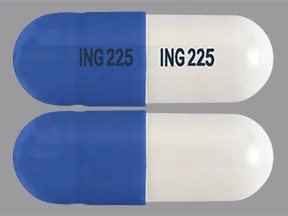
tizanidine 4 mg capsule
Color: light blue,whiteShape: oblongImprint: ING 225 ING 225This medicine is a white, round, scored, tablet imprinted with "U 168".

tizanidine 2 mg capsule
Color: light blueShape: oblongImprint: ING 224 ING 224This medicine is a white, round, scored, tablet imprinted with "U 168".
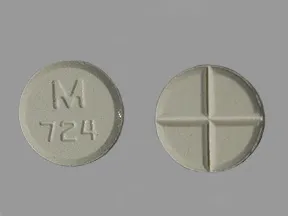
tizanidine 4 mg tablet
Color: whiteShape: roundImprint: M 724This medicine is a white, round, scored, tablet imprinted with "U 168".
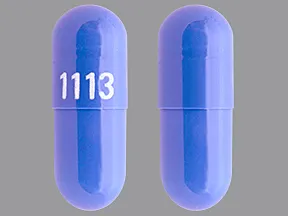
tizanidine 6 mg capsule
Color: violetShape: oblongImprint: 1113This medicine is a white, round, scored, tablet imprinted with "U 168".
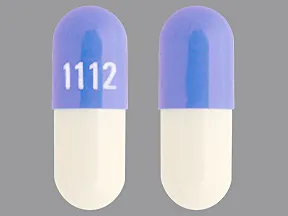
tizanidine 4 mg capsule
Color: white,violetShape: oblongImprint: 1112This medicine is a white, round, scored, tablet imprinted with "U 168".

tizanidine 4 mg tablet
Color: whiteShape: roundImprint: E 44This medicine is a white, round, scored, tablet imprinted with "U 168".

tizanidine 4 mg capsule
Color: white,blueShape: oblongImprint: A 203This medicine is a white, round, scored, tablet imprinted with "U 168".
You Might Also Like
Are you currently using Tizanidine HCL?
This survey is being conducted by the WebMD marketing sciences department.
Selected from data included with permission and copyrighted by First Databank, Inc. This copyrighted material has been downloaded from a licensed data provider and is not for distribution, except as may be authorized by the applicable terms of use.
CONDITIONS OF USE: The information in this database is intended to supplement, not substitute for, the expertise and judgment of healthcare professionals. The information is not intended to cover all possible uses, directions, precautions, drug interactions or adverse effects, nor should it be construed to indicate that use of a particular drug is safe, appropriate or effective for you or anyone else. A healthcare professional should be consulted before taking any drug, changing any diet or commencing or discontinuing any course of treatment.